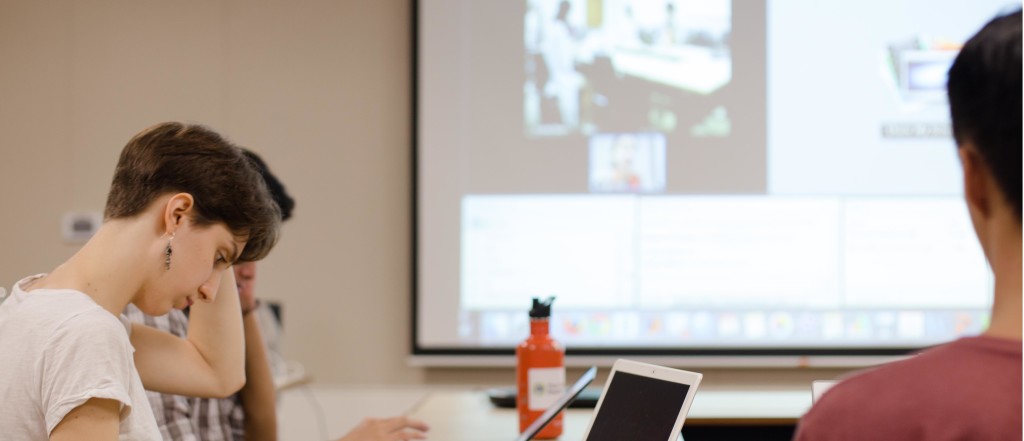Harnessing technology to support a global curriculum

Since admitting our inaugural class in 2013, Yale-NUS College has been exploring new ways to redefine liberal arts and science education for a complex, interconnected world. To facilitate active learning among its diverse student body, the College actively harnesses technology to support its innovative and global curriculum.
This semester, Yale-NUS launched its first-ever joint course with Yale University, where students from both institutions have the opportunity to take the same course together despite being thousands of miles apart.
Students in the “China’s Energy and Environmental Sustainability Challenge” course ‘enter’ a virtual classroom and meet with Dr Angel Hsu, Assistant Professor of Social Sciences at Yale-NUS College, and carry out an active discussion with classmates in a borderless setting, bringing with them perspectives from all over the world.
Aided by online learning software, Dr Hsu and her students in Singapore and New Haven, Connecticut, discuss and debate on issues relating to energy and environmental challenges in China, and learn quantitative tools for analysing energy-related issues. “Connecting students in New Haven and Singapore on the important topic of China’s energy and environmental sustainability provides a truly global perspective in the classroom. Students come not only from the United States and Singapore, but Pakistan, the Netherlands, Germany, Italy, and China, which makes for an enriching and diverse dialogue,” said Dr Hsu.
Besides using technology in teaching, the College has also pioneered ways to facilitate active team learning with wireless collaboration tools. At the learning spaces at Yale-NUS, such as classrooms, study rooms, and lecture halls, students and faculty can collaborate easily by connecting wirelessly to a common platform or main screen and share multiple displays for presentations or discussions.
There are exciting plans to harness technology to bring Yale-NUS closer to the world, and the world to Yale-NUS campus.
In addition to Dr Hsu’s online course with Yale University, Yale-NUS also offers three online language courses, namely Portuguese, Italian and Russian, through partnering with Yale University.
On the plans to support faculty in using technology, Mr Ken Panko, Yale-NUS’ Director of Educational Resources & Technology, said, “Moving forward, we are looking into developing online and distance learning approaches to connect our campus with Yale University and other universities through co-taught courses and remote guest lectures.” Mr Panko also added that there are plans to use technology to enable undergraduate research such as data collection and analysis tools, with the eventual aim of making such data available publicly for wider use.
To foster excellence and innovation in teaching, Yale-NUS has founded a new Centre for Teaching and Learning (CTL). The Centre provides consultation to faculty on their courses, provides programming and resources to share new ideas and best practices in teaching and assessment, and supports new faculty to develop their teaching.
A new initiative of the Centre is to join in a task force convened by Yale-NUS College President Pericles Lewis, to explore new ways to foster technology-enhanced teaching. The Director of the Centre for Teaching and Learning, Professor Bryan Penprase, said that the new CTL will work closely with the ERT department and the President to bring in experts in advanced pedagogy, and to foster new technology-enhanced courses at Yale-NUS. This effort can involve new “global classroom” courses with international partners, as well as making better use of online forums, creating wiki pages with students, using clickers, iPads, and other technology in class, and exploring ways of using online tutorials in many of the classes.
Professor Penprase pointed out that the goal of CTL is to help faculty share and learn from each other, and to create a teaching culture that is innovative, responsive to students, and providing the best quality of teaching possible. “Technology is part of this mixture, and at Yale-NUS we need to explore how to use technology effectively – not for technology’s sake – but to improve the classroom experience for students and enhance learning at Yale-NUS College,” added Professor Penprase.





